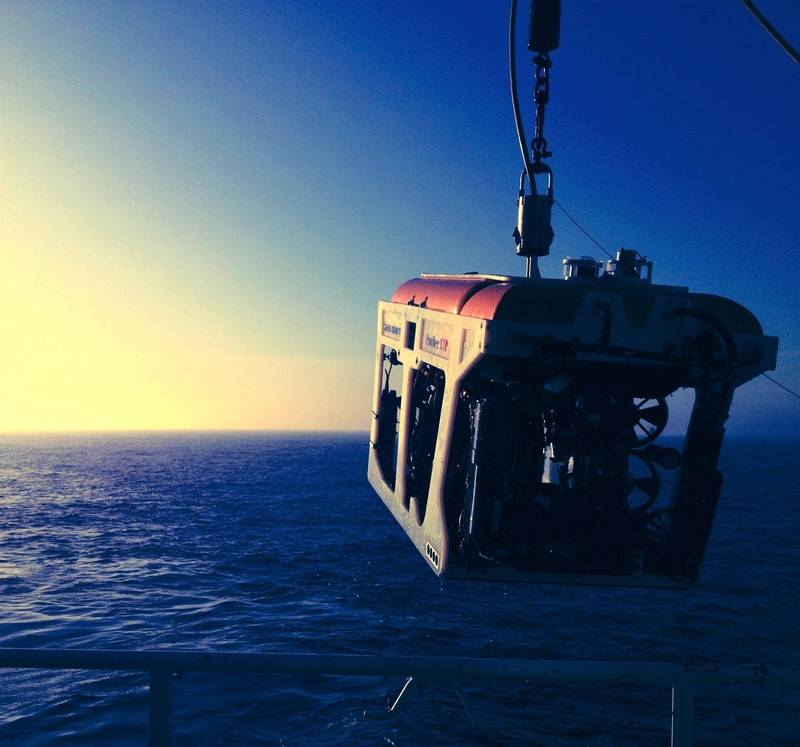In a First, ROVOP Inspects Offshore Installation via Video Link
UK-based ROV services provider ROVOP has said it has delivered its first remote platform-based inspection, repair, and maintenance workscope, “effectively reducing the number of personnel required offshore,” on Premier Oil’s Balmoral floating production vessel in the UK North Sea.
The ROV company carried out remote visual and NDT inspections of hull sections, flowlines, umbilicals, and risers, along with chain inspection, measurement, and cleaning, on the Balmoral unit with the help of a live video stream.
“Using the latest communications and modeling technology, ROVOP worked closely with Premier Oil to develop a robust live video streaming service back to shore. Two-way open communications allowed the inspection and data recording engineers to run the workscope remotely from onshore, resulting in three less people on board the vessel, where accommodation is limited due to the COVID-imposed restrictions,” ROVOP said.
Premier Oil, which on Tuesday said it would merge with Chrysaor, last month filed the decommissioning plan for the Balmoral FPV and the associated subsea infrastructure. The Balmoral platform was installed in the Balmoral Area in 1986.
ROVOP said that the cloud-based viewing platform allowed those working from home to view the inspection work as it unfolded.
“They were able to see exactly what the ROV and inspection engineers were seeing in real-time. Data, which would once have taken weeks to return from offshore to be analyzed, was captured as those watching onshore were able to influence the operation live, making the campaign much more efficient,” ROVOP said.
Credit: ROVOP
Also, ROVOP selected subsea mooring inspection and integrity engineering specialists Welaptega, an Ashtead Technology company, to support the project. Welaptega’s mooring inspection and 3D modeling photogrammetry equipment was integrated into the ROV to enable accurate and repeatable chain measurement and 3D modeling of the subsea template.
The point cloud data produced will be used to assist the planning of the template removal, ROVOP said.
The main components of the Balmoral field consist of; the Balmoral FPV, Balmoral Template, 11 template and 10 satellite wells, a riser system, pipelines, umbilicals, and cables.
Paul Hudson, ROVOP’s sales and marketing director, said: “Reducing numbers of people offshore has clear benefits in terms of risk, cost and overall efficiency and, of course, it is particularly relevant when dealing with the challenges presented to the offshore industry by the coronavirus pandemic. This project underlines how digitalization and collaboration can address some of our most pressing industry challenges.”
David Robertson, diving & ROV engineer with Premier Oil, added: “This is a fantastic achievement for both ROVOP and Premier Oil. Through a lot of hard work and collaboration with respective network technology companies, we managed to de-risk personnel traveling to an offshore installation during the COVID-19 pandemic.
“Executing work of this nature from an installation is always challenging due to bed space requirements. We have proven that inspection activities can be done with a significant reduction in manpower offshore, which potentially paves the way for cost and greenhouse gas reductions across our other assets in the future”.
Source: Marine Technology Oct 7, 2020



Leave a Reply
Want to join the discussion?Feel free to contribute!